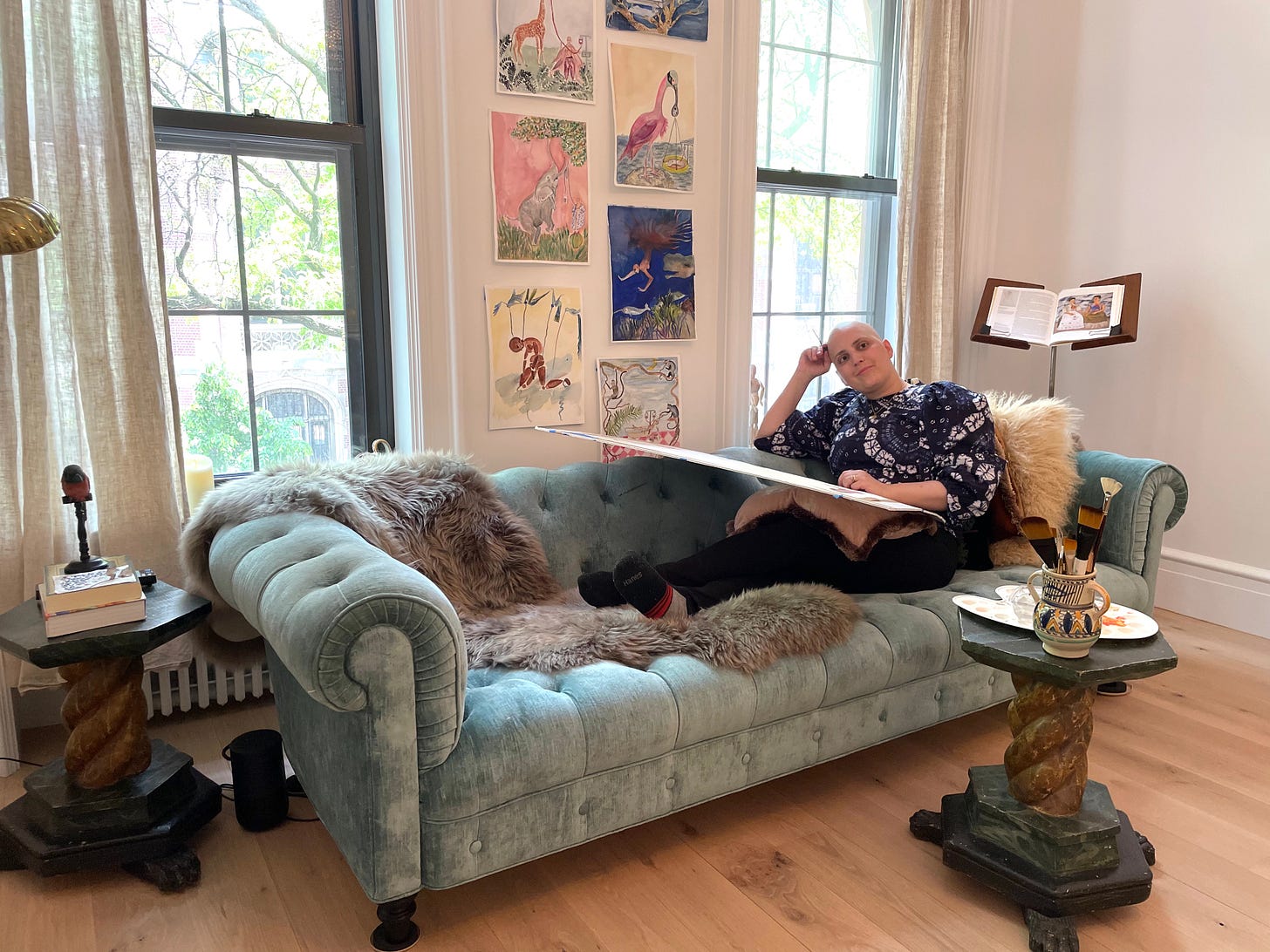We’re halfway through our 100-day project, and if you’ve been with us from the beginning—congratulations! If you’re new here, or want to invite a friend to participate, it’s not too late. You can make it a 50-day project and start now. Learn more about the project here!
Hi friend,
Today is Day 50 of our 100-day project! In this moment, I’m reminded of the 15,000-mile road trip I took in my twenties, which was its own kind of 100-day project. When I reached the midpoint, I felt a distinctive shift. I’d hit the West Coast, gone as far as I could without driving right into the Pacific, and it felt pivotal: both a literal and figurative turning point. Up until then, time seemed to sprawl. One hundred days might as well have been 1,000 or even 100,000. But suddenly at Day 50, I could see the end. Though I still had many miles to cover, I was homegoing, and I felt a renewed sense of urgency to savor and make the most of the remaining days.
I thought a lot about this over the weekend, when I was readmitted to the hospital for transplant complications—a less-than-thrilling end to two tough weeks, where I was the least consistent on my 100-day project as I’ve been at anything in my life. I’ve been gentle with myself, trying to “love the lapses,” as one community member suggested. But in being so gentle with myself, and in having such a low barrier to entry—of just painting any amount whenever I feel up to it—I’ve felt adrift and struggled with consistency.
Oddly, my recent lapses have had little to do with my health—in fact, I’ve realized that the sicker I am, the more I’m pulled toward this anchoring, enlivening act of putting brush to canvas each day. As soon as I was back in the hospital, I was painting again, spending hours at a time on a large piece called “The Clock” (pictured below). I’d been avoiding it, as I hadn’t quite figured out how all the parts fit together, how the composition would cohere. There in my hospital bed, I suddenly saw solutions where before there had only been problems. I told one of the nurses that I was most prolific in the hospital and joked that it was my ideal artist’s residency.
“Next time I’m creatively stuck, I’ll find a way to get myself readmitted,” I said.
“You’ve got issues,” she quipped back, “and leukemia might not be your biggest one.”
Over the last decade, I’ve written a lot about the link between creativity and illness—how limitation necessitates invention, how confronting your mortality forces you to find new modes of expression, how life’s interruptions twist your mind out of its normal rut, as Road Dahl said. For me, a hospital room feels like a kind of monastic cell, where all artifice is stripped away and I’m forced to make meaning of what’s left. That intensity can be useful, but it’s also untenable—like the musicians who can’t compose a song unless they’re heartbroken, or the poets who can’t write a line unless they’re in existential despair. Why must things be in extremis in order to create?
Keep reading with a 7-day free trial
Subscribe to The Isolation Journals with Suleika Jaouad to keep reading this post and get 7 days of free access to the full post archives.





